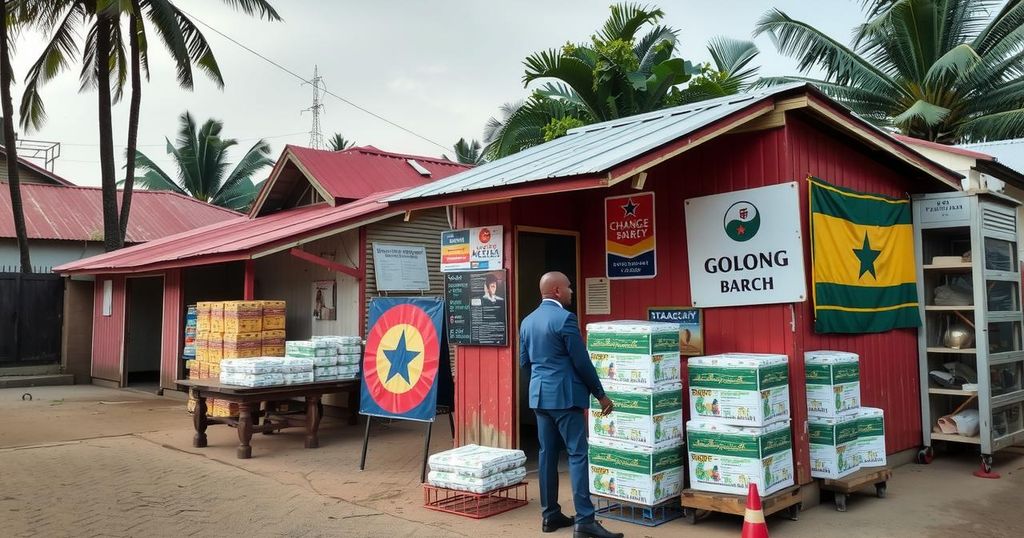Ghana’s Elections Test Democracy Amid Economic Crisis

Polls opened in Ghana’s presidential and legislative elections, overshadowed by a significant economic crisis affecting the nation. With around 18.7 million registered voters, the election features a contentious race between Vice President Mahamudu Bawumia and former President John Dramani Mahama. The electorate is grappling with high inflation rates and a history of disillusionment with political leadership, raising questions about the future of democracy in the country.
On Saturday, polls opened in Ghana for presidential and legislative elections, taking place against the backdrop of the country experiencing its most severe economic crisis in a generation. Approximately 18.7 million registered voters will have the opportunity to elect their representatives. Historically regarded as a model of democratic governance in West Africa, Ghana now faces critical challenges, including soaring inflation and job shortages.
The election is primarily a contest between Vice President Mahamudu Bawumia of the ruling New Patriotic Party (NPP) and former President John Dramani Mahama of the National Democratic Congress (NDC). Despite the presence of 12 candidates, analysis suggests that the electorate perceives this election as primarily a two-horse race, with both candidates offering similar proposals for addressing the nation’s economic difficulties.
In prior years, Ghana was celebrated for its democratic stability and peaceful transitions of power. However, recent economic struggles have diminished public trust in the political establishment, with a staggering 82% of Ghanaians indicating their belief that the country is heading in the wrong direction, as noted in a recent Afrobarometer poll. Both candidates, during their final campaign events, reiterated their commitments to remedy the ongoing economic woes, with Bawumia advocating for continuity in the current administration’s policies, while Mahama called for a comprehensive reset of all facets of governance and the economy.
The atmosphere surrounding the election has been marked by a mix of enthusiasm and trepidation. Although campaign rallies and electoral festivities are visible throughout Accra, the stark economic realities remain omnipresent. Ghana’s deepening economic crisis has forced the nation to default on foreign debt obligations, and rampant inflation rates have severely impacted citizens’ daily lives, reducing purchasing power amid rising costs of living.
Additionally, the issue of illegal gold mining, known as galamsey, has surfaced as a significant topic during the campaign. While Ghana is a leading gold producer, illegal mining activities have spurred environmental degradation and intensified competition for jobs in a struggling economy. As citizens prepare to vote, they are faced with the monumental task of selecting leaders capable of bringing about meaningful economic recovery and restoring faith in democratic institutions.
Ghana has long been considered a beacon of democracy in West Africa, transitioning to a multiparty system in 1992, with a history of relatively peaceful elections. However, recent years have witnessed a staggering decline in economic conditions, characterized by crippling inflation and widespread unemployment. The country faces challenges not only from economic mismanagement but also from societal issues like illegal mining, which have compounded the crisis. With the upcoming elections viewed as critical to restoring democratic integrity, voter sentiment reflects a pervasive dissatisfaction with the direction of the nation.
The general election in Ghana marks a pivotal moment as voters confront the dual challenges of selecting capable leadership while grappling with the dire economic landscape. With both leading candidates offering similar promises, public sentiment remains skeptical about their ability to effect transformative change. Ultimately, the success of this election hinges on the capacity of the new leaders to address the pressing economic concerns that weigh heavily on the Ghanaian populace.
Original Source: www.newsday.com





